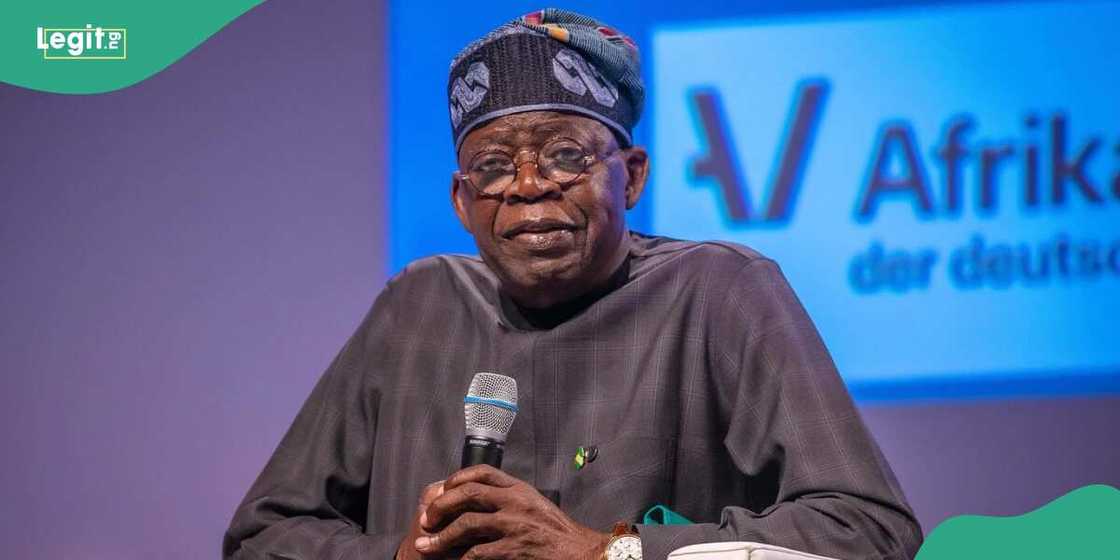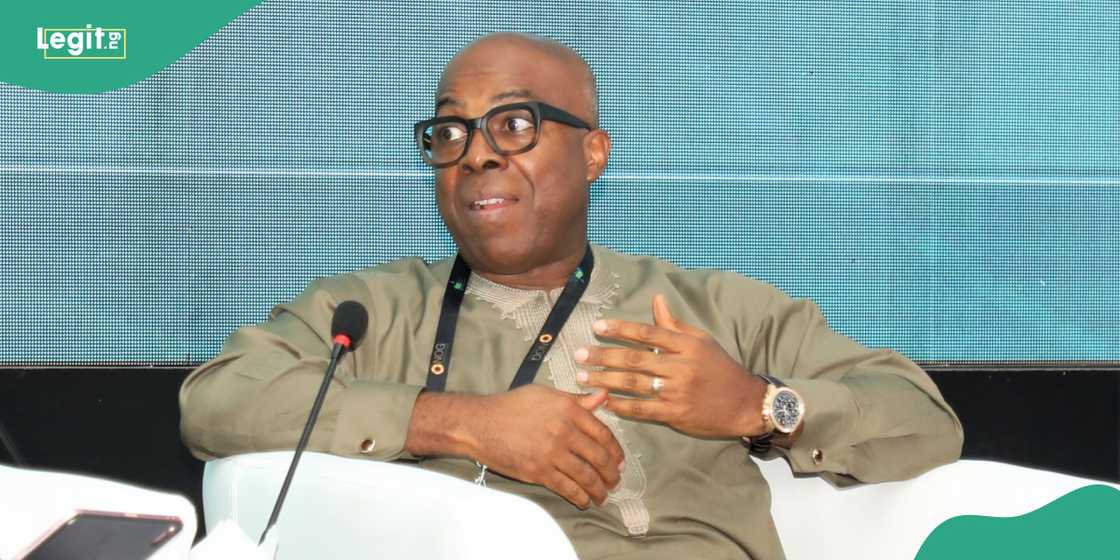Tinubu’s Govt Announces Date to Ban 60,000-litre Fuel Tankers from Nigerian Roads
- The Nigerian Midstream and Downstream Petroleum Regulatory Authority (NMDPRA) has announced a ban on 60,000-litre fuel tankers from operating on Nigerian roads, effective March 1, 2025
- Legit.ng gathered that the decision is intended to mitigate truck-in-transit incidents, some of which had resulted in infernos and several deaths
- Adeola Yusuf, an energy policy analyst, says banning 60,000 litres capacity trucks will not curb fuel tanker explosions.
Don't miss out! Join Legit.ng's Sports News channel on WhatsApp now!
Legit.ng journalist, Ridwan Adeola Yusuf, has over 9 years of experience covering public affairs and governance.
FCT, Abuja - The Nigerian Midstream and Downstream Petroleum Regulatory Authority (NMDPRA) has banned 60,000-litre fuel tankers from operating on Nigerian roads.
As reported by The Cable, speaking to journalists on Wednesday, February 19, in Abuja, Ogbugo Ukoha, NMDPRA's executive director of distribution systems, storage, and retailing infrastructure, said the ban, which would take effect from March 1, would mitigate truck-in-transit incidents.

Source: Facebook
Nigeria takes action against incessant road crashes
He noted that the decision was made in response to the increasing number of road accidents involving heavy-duty petroleum tankers.
According to Ukoha, the regulatory agency has been working with industry stakeholders, including petroleum marketers, transport unions, and safety experts, to implement measures aimed at reducing tanker-related accidents. The new policy aligns with global best practices, as many countries impose strict limits on fuel truck sizes to prevent road hazards.
The NMDPRA has also indicated that additional safety measures will be introduced in the coming months, including stricter enforcement of loading limits at depots and refineries.

Source: Twitter
Ukoha said:
“The important thing about this is that, for the first time, consensus was built amongst all stakeholders, and we will work together to deliver a safe transportation of petroleum products across the country."
Ukoha urged petroleum marketers and tanker operators to comply with the directive ahead of its implementation, warning that violations would attract severe penalties.
The ban comes amid ongoing concerns about the state of Nigeria’s road infrastructure, with experts highlighting the dangers posed by overloaded fuel tankers on poorly maintained highways.
Analyst calls for pipeline repairs and alternative transport
As Nigeria moves to implement a ban on 60,000-litre fuel tankers, an energy policy analyst, Adeola Yusuf, has expressed concerns over the effectiveness of the measure in addressing tanker accidents.
Speaking in an interview with Legit.ng, he acknowledged the government's intention to curb fuel tanker mishaps but argued that the measure alone would not eliminate the problem.
He said:
"Even though that may have some kind of effect, I don't think that will stop fuel tanker explosion and accidents on Nigerian roads."
Yusuf attributed the accidents to the poor state of Nigerian roads, saying:
"Part of what contributes seriously to tanker accidents is the bad roads. The NMDPRA ought to have provided an alternative."
Yusuf suggested that the NMDPRA should focus on fixing the country's pipelines, which would enable easy transportation of fuel products rather than trucks.
As he put it:
"What the NMDPRA should be doing now, in addition to the effort made to stop loading of 60,000 litres trucks, is to ensure that those pipelines are fixed."
He further proposed the use of trains to transport inflammable products, as it is done in other countries pending when the pipelines are fixed.
The analyst also stressed the importance of ensuring the good condition of trucks and collaboration with road safety agencies to minimize accidents.
He concluded:
"Beyond adopting other means like train transportation, they should see more to the state of the engines of those trucks. They need to engage in serious collaboration with road safety agencies like the FRSC, the VIO, even the police to ensure accidents of fuel tankers on Nigerian roads are totally stopped."
Read more latest Nigeria news from the energy sector:
- Reps investigate NNPC, oil firm over $1.6bn debt as Dangote reacts to alleged adulterated fuel
- After viral video against NNPC petrol, Ardova sends warning to content creators
- NNPC reacts to reports of importing 200m litres of PMS in February
- Nigerian rush to buy Dangote petrol after video shows fuel from refinery lasts longer than NNPC
Tinubu's govt approves new cargo airport
Earlier, Legit.ng reported that President Tinubu's administration approved the concession of the Kashimbila Integrated Cargo/Agro-Allied Airport in Taraba state.
The approval conveyed by the federal executive council (FEC) under a Public-Private Partnership (PPP) arrangement, sparked widespread excitement.
A statement by Ifeanyi Nwoke, the acting head of media and publicity of the Infrastructure Concession Regulatory Commission (ICRC), noted that the project was approved under its regulatory oversight and would span multiple sectors, including agriculture, water resources, and aviation.
Editorial assistant Ololade Olatimehin provided exclusive commentary from an energy policy expert for this report.
PAY ATTENTION: Сheck out news that is picked exactly for YOU ➡️ find the “Recommended for you” block on the home page and enjoy!
Source: Legit.ng


